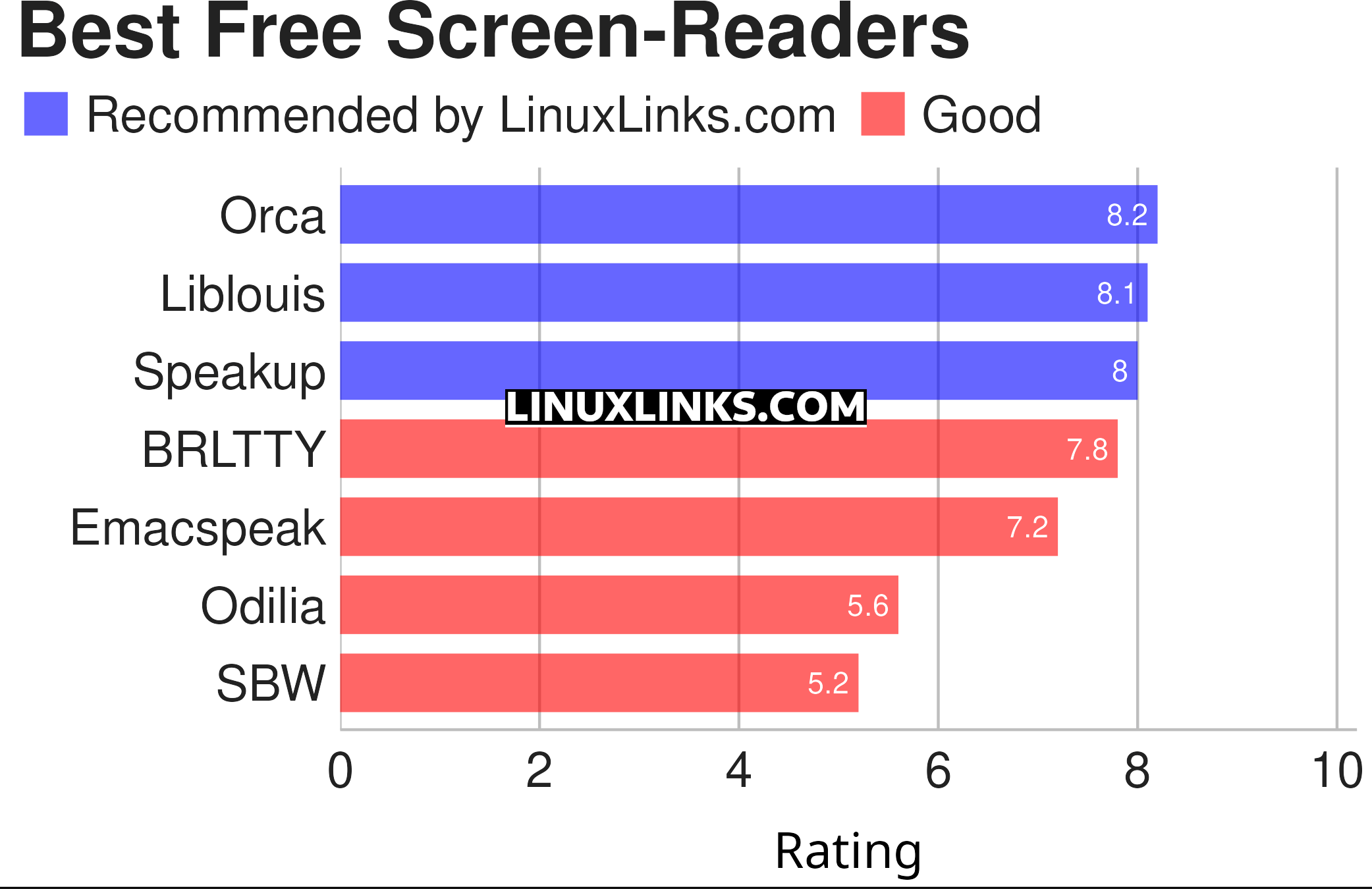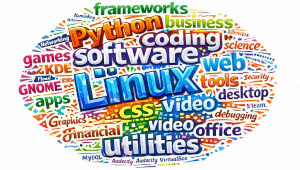A screen-reader is a computer application designed to provide spoken feedback to a blind or visually impaired person. This type of software has been available since the mid 1980s.
The software transmits what text is displayed on the screen into a form that a visually impaired user can understand. This can be auditory, tactile, or both. A lot of research and development was undertaken to provide speech-access to the Graphical User Interface.
Screen-readers read the contents of a visual display. They can use a speech synthesizer to read text aloud letting users listen to the contents appearing in different parts of the display. Other software communicates data via a braille display.
Screen-readers help make the world of computers accessible to visually impaired users.
Here’s our verdict summarized in a legendary LinuxLinks-style chart. The software featured here is free and open source software. Note, Emacspeak takes a different approach. While it’s not technically a screen-reader, it warrants inclusion.

Let’s explore each application in more detail. For each program we have compiled its own portal page, a full description with an in-depth analysis of its features, together with links to relevant resources.
| Screen-readers | |
|---|---|
| Orca Screen Reader | Screen-reader which provides access to applications and toolkits |
| Liblouis | Braille translator, back-translator and formatter |
| Speakup | Kernel-based speech synthesizer driver suite |
| BRLTTY | Provides access to the console using a refreshable braille display |
| Emacspeak | Emacs extension that provides spoken output |
| Odilia | Rust-based screen reader |
| SBW | Text editor with support for braille input |
This article has been revamped in line with our recent announcement.
 Read our complete collection of recommended free and open source software. Our curated compilation covers all categories of software. Read our complete collection of recommended free and open source software. Our curated compilation covers all categories of software. Spotted a useful open source Linux program not covered on our site? Please let us know by completing this form. The software collection forms part of our series of informative articles for Linux enthusiasts. There are hundreds of in-depth reviews, open source alternatives to proprietary software from large corporations like Google, Microsoft, Apple, Adobe, IBM, Cisco, Oracle, and Autodesk. There are also fun things to try, hardware, free programming books and tutorials, and much more. |

